Many people, if not everyone, value theirprivacy. However, with existing technology, it’s becoming harder to protect. We might not notice it, but we’re being monitored pretty much everywhere we go—streets, public transport, supermarkets, shopping centers, and even workplaces. And that’s without social media and various apps on our phones and computers.
Scroll down to find the full story and a conversation we had withSteven Chizen, a San Francisco Bay Area-based employment lawyer, who kindly agreed to tell us more about workplace privacy.
With current technology, it’s getting difficult to protect our privacy

Image credits:Engin Akyurt / Pexels (not the actual photo)
This man shared how new devices at work breached his own personal space

Image credits:Coldbruskeee / Reddit
Later, the author came back with an update

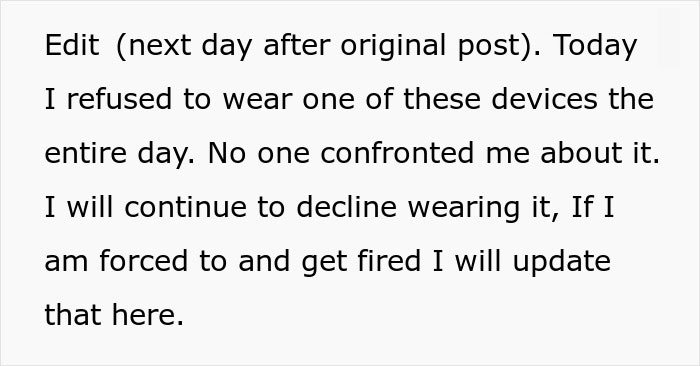
Image credits:Coldbruskeee
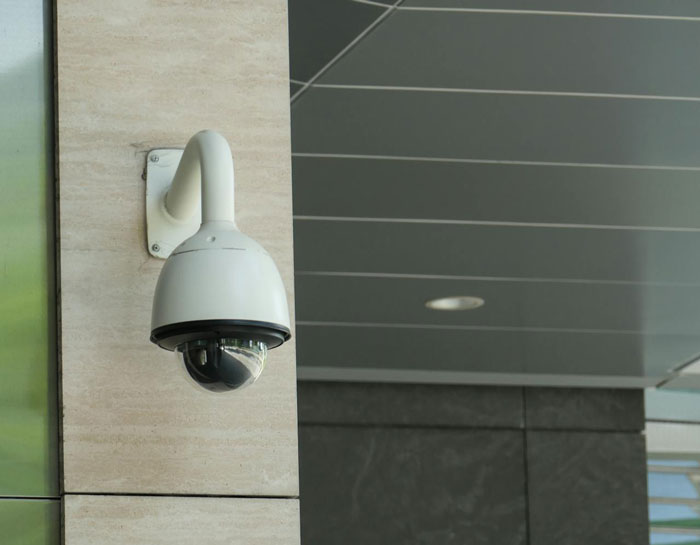
Image credits:Towfiqu barbhuiya / Pexels (not the actual photo)
Employee monitoring technologies have become more prevalent in the past few years
Employment lawyerSteven ChizentoldBored Panda, “Companies pay their employees wages. In return, they often feel entitled to control their employees as much as possible. Since more work happens electronically and remotely these days, out of the eyeshot and earshot of a direct supervisor, companies frequently rely on surveillance and monitoring software.”
He further explains, “There are many reasons for this, some of which are more valid than others. For example, a company might want to monitor emails to make sure employees are not sending confidential information to their personal accounts or external parties. Other times, companies simply act as a “helicopter parent” for employees, which often leads to a culture of fear among non-managerial workers.”
Experts attribute this bigger need for monitoring to the pandemic and the shift to hybrid work, as 85% of employers find it hard to believe that their workers are being productive while working from home. Kathryn Weaver, a partner at the law firm Seyfarth, alsomentionsthe need to guarantee workplace safety and protect the company.

Image credits:fauxels / Pexels (not the actual photo)
All of this is happening with most employees not knowing
All of this is happening with most employees not knowing, as 62% report not being aware their activities are monitored. 33% of those who know believe that it negatively affects their mental health. They also admit feeling more anxiety and pressure to work longer hours.
Unfortunately, these aren’t the only downsides to surveilling employees. During the pandemic, employee identity theft and other fraudulent activities were on the rise due to the security gaps that came with hybrid work. “Previously, the edge of the network was very defined within a building, but now you have employees all over the place,” explains Elizabeth Harz, CEO of employee monitoring software Veriato.
However, not all employees are making peace with being monitored. ExpressVPN research has found that monitored workers were significantly more likely to take unapproved breaks and complete tasks slowly on purpose.
Most jurisdictions allow employees to monitorworkdevices, as long as they consent to it. But often, workers are unaware they agreed to it, as employee surveillance is a clause commonly located in the middle of employment contracts. “When you’re looking at your contract, you’re not looking for those clauses — you’re looking at how much am I going to get paid? What benefits do I have? You will probably skip over sections to do with data privacy because they’re not important to you at that point in time,” Weaver said.
“In California, workers maintain a reasonable expectation of privacy in areas of work that ought to be private, for example, a bathroom or lactation room,” says Chizen. “That said, employers have a lot of leeway to monitor employees’ electronic devices that are company-issued (phones, emails, and computers). Employers may not monitor devices that are strictly personal, not company-issued, and not used during working hours.”
To protect their privacy, workers should remember that management has access to everything they do on a work-issued electronic device, says the employment lawyer. “Employers should keep personal activities completely off of company laptops, phones, and VPNs,” he advises.
“Too often, I see employees who routinely use social media on their employer’s laptop, shop online during working hours from their employer’s device, or send company documents to their personal emails. While it is true that many employers simply don’t care if you do a little personal work from company devices, many do, and employees could be disciplined and/or terminated depending on the severity of the circumstances.”
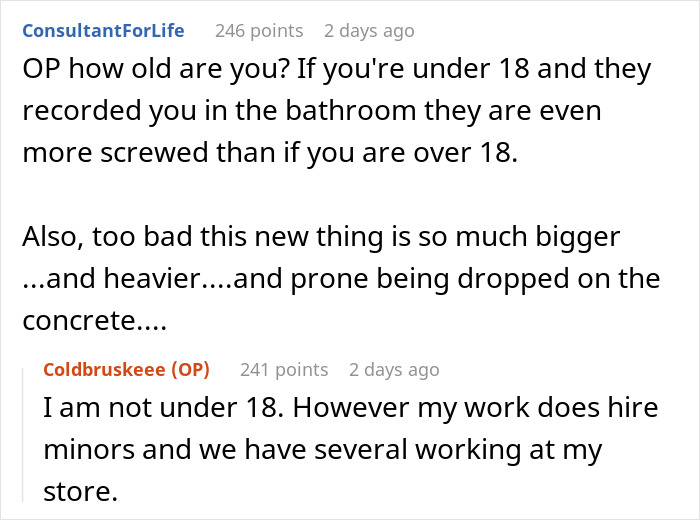
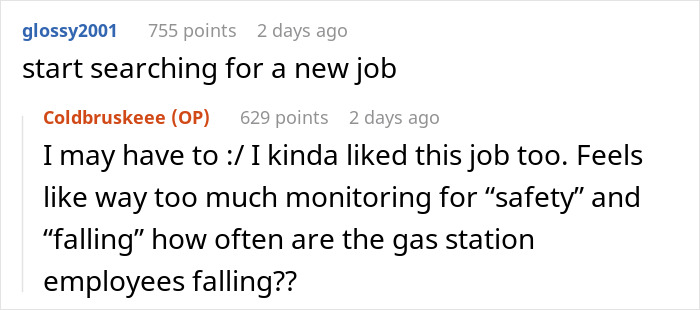
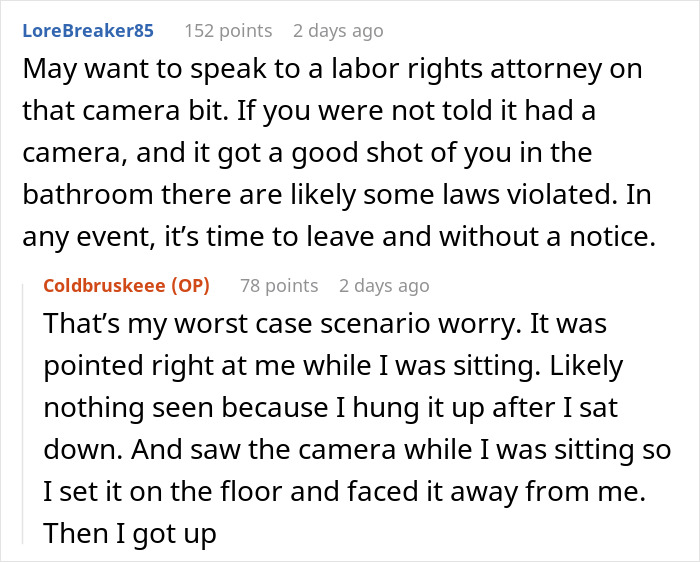
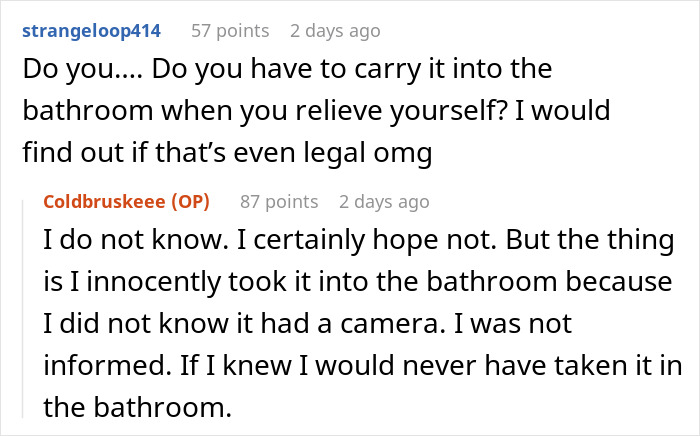
He received many reactions from readers and advice on what to do


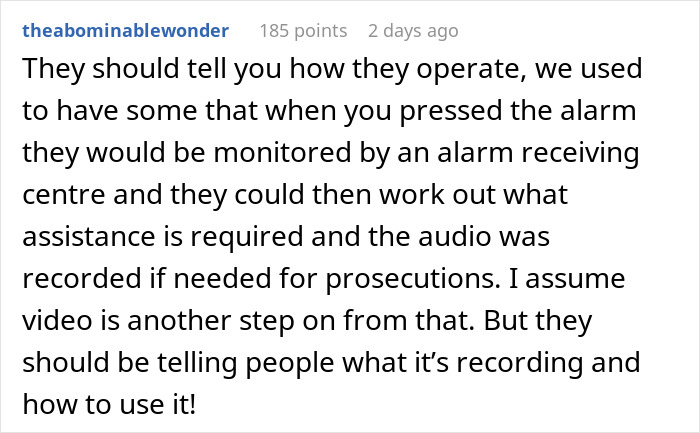


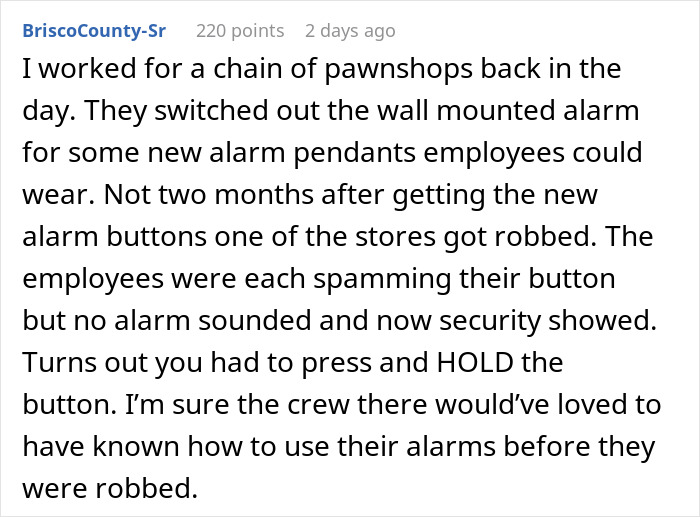
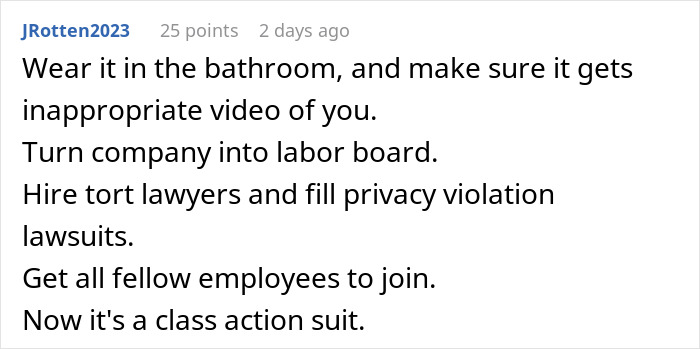

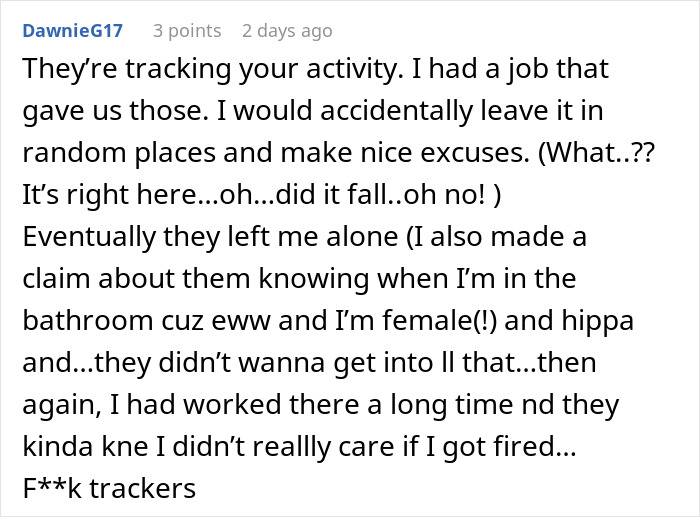
Progress:Ic check outlinedDialog closeIc_smileIc_mehNextNextBackIc check outlinedDialog closeIc_smileIc_mehThanks! Check out the results:View alternative results:0
Progress:Ic check outlinedDialog closeIc_smileIc_mehNextNextBack
Progress:
Ic check outlinedDialog close
Ic_smileIc_meh
NextNextBack
Next
Back
Ic check outlinedDialog closeIc_smileIc_meh
Thanks! Check out the results:View alternative results:
View alternative results:
0Gabija Saveiskyte
Justinas Keturka
Indrė Lukošiūtė
Work & Money